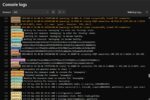
Microsoft’s annual developer conference, Microsoft Build, kicked off yesterday, and as a result, the company has been making a lot of updates to its developer offerings.
Windows Terminal Preview 1.18 was released, which means Windows Terminal has now been updated to version 1.17. This release includes the addition of Tab Tearout, which allows you to drag tabs out of Windows Terminal and into different windows. The terminal also now reloads environment variables whenever a new tab or pane is opened, where previously you would have to fully restart the terminal after installing something.
The Atlas text rendering engine in Windows Terminal has also seen many improvements after being nearly completely rewritten, and it now supports overlapping text.
RELATED CONTENT: Microsoft Build 2023 brings expansions to the AI ecosystem, new plugin capabilities with Microsoft’s Copilot ecosystem, and more
The company also announced the general availability of the Azure Developer CLI, which will make it easier for developers to control their Azure setups. Benefits include the ability to use security and cloud best practices, staying productive while writing code, and avoiding needing to spend time on configuring Azure.
The company first previewed this new feature last year and has since worked with the open-source community to fine-tune it to their needs. The 1.0 release includes a template gallery; support for Visual Studio Code, GitHub Codespaces, and Visual Studio; command and service hooks; the ability to use Bicep or Terraform to write IaC; and more.
Another update from the event is the addition of new features for elasticity in Azure Cosmos DB. Burst capacity uses idle throughput capacity to handle traffic spikes, providing customers with a buffer for under-provisioned resources. Hierarchical partition keys allow up to three partition keys to be used, which helps in the optimization of data distribution and scalability. Materialized views for Azure Cosmos DB for NoSQL creates a secondary view of data so that queries too expensive to serve can be served in an existing container.
The company announced an advanced model optimization tool called Olive. It integrates with DirectML to provide hardware acceleration across the Windows ecosystem.
Olive can be used to access techniques like model compression, optimization, and computation without needing to be an expert in model optimization.
Microsoft also announced Dev Drive, which is an evolution of the Windows ReFS filesystem that was created with developer workloads in mind. Dev Drive will be shipping with Windows later this year and has opened it up to early testing in the Windows Insider program.
The company also announced the .NET Framework May 2023 cumulative update. This includes two fixes in Windows Presentation Foundation (WPF) and fixes an issue in which a SQL connection wouldn’t get terminated by the library when an error is thrown in a client application.






